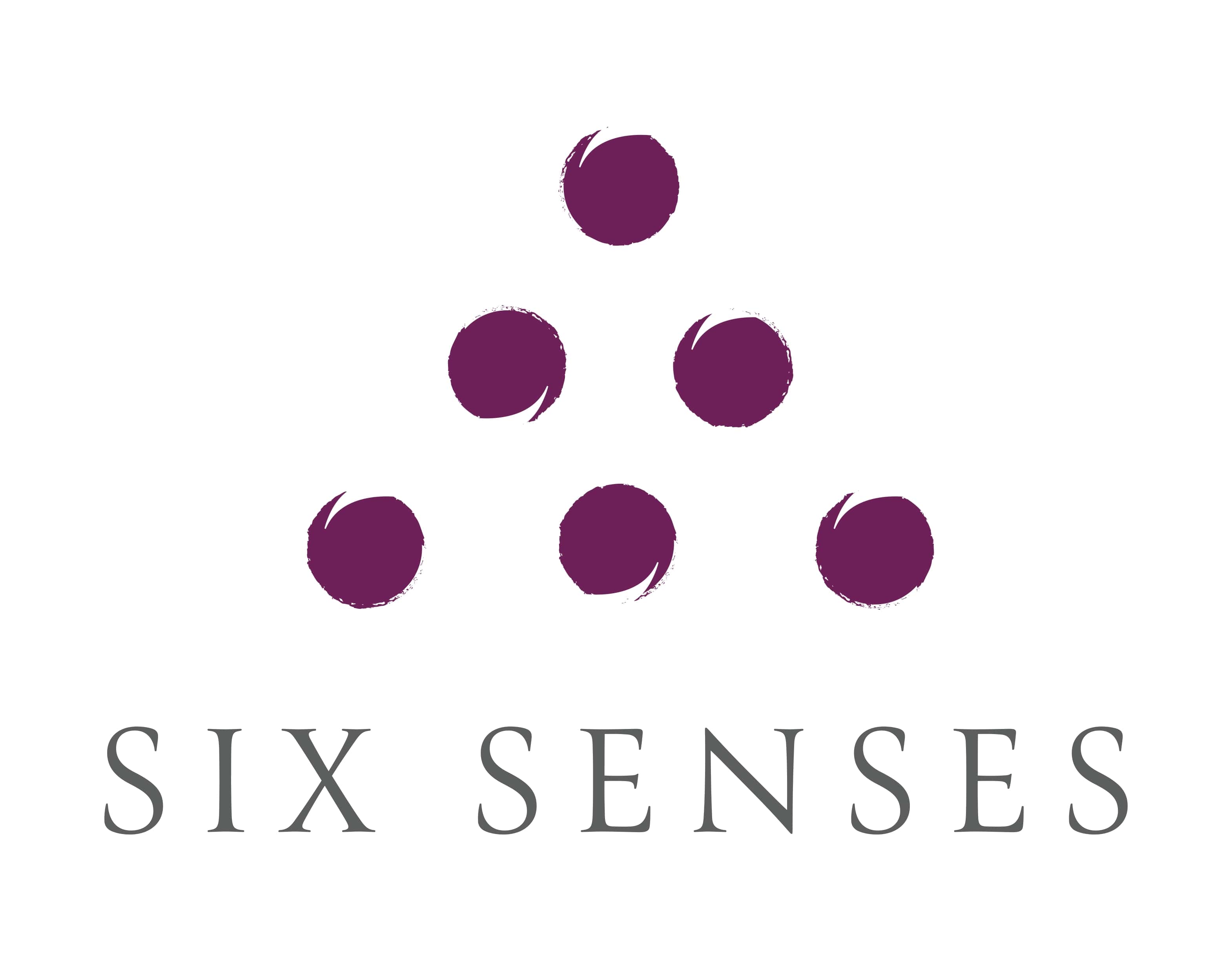Journey to Plastic Freedom Documented in Practical Playbook
Six Senses shares 82 tried and tested solutions with wider hotel industry to help eliminate the use of plastic in hospitality.

London, UK – Six Senses has been on a journey to eliminate plastic from its properties ever since the brand was founded in the mid-1990s. By the time plastic had become a dirty word in 2016, single use bottles, straws and disposable packaging were long gone, and Six Senses was already taking pioneering steps towards eliminating more complex and challenging plastic items.
This Journey to Plastic Freedom has been recorded diligently by Six Senses sustainability teams and today Six Senses has announced it will be sharing this operational intelligence with the wider hospitality industry.
Sustainability is a defining characteristic of what luxury means to us. We are sharing our playbook with other hotel groups because the issue needs collective action if we are to make a real impact on our environment. If that means sharing our trade secrets with the wider industry, then so be it. What we know from our years of experience is that sustainability doesn't have to be to the detriment to guest experience. This playbook only tells half the story. The real legacy will be how our journey is embedded within further afield and who knows, potentially become part of life for all hotel operations. Neil Jacobs, CEO of Six Senses
The Six Senses Journey to Plastic Freedom Playbook has 82 tried and tested solutions to plastic items in the four main areas of a hotel’s operations – housekeeping, back of house, food and beverage and spa. Items being eliminated range from bags and toothpaste tubes to coffee capsules and brooms. The playbook also shares ten lessons about how being environmentally and socially responsible can be successfully married to uncompromising hospitality, efficient operations, profitability, an outstanding guest experience and high levels of satisfaction and engagement among colleagues.
As part of IHG’s luxury and lifestyle portfolio, Six Senses has shared the Journey to Plastic Freedom Playbook with 6,400 IHG hotels across the world. The next step is for Six Senses is to share it with the wider industry. There will be a webinar on Wednesday November 6 for anyone working in the hospitality industry who wants to learn more and from that date, the playbook will be available to download online.
HOW IT STARTED: WAKE UP AND SEE THE PLASTIC
Following a successful plastic-free pilot at Six Senses Laamu in 2016, the brand commissioned a group-wide inventory of every plastic item within its operations. To its surprise, even though it was eliminating tens of thousands of items, the numbers kept going up.
Jeff Smith, Six Senses Vice President of Sustainability, puts this down to the fact staff members were becoming more aware and able to identify the plastic around them. He said: There’s no way to sugarcoat it. Eliminating plastic items can be difficult, but it is rewarding. We launched an education and awareness campaign which comprised six training modules. It opened the company’s eyes to the plastic it hadn’t ‘seen’ before. No item was too large or small to be nominated for eliminating. That said, it’s one thing to identify items for eliminating and research better alternatives but quite another to get hosts to do without a material that made their life easier and more efficient. We now have 82 solutions for plastic items which we know are viable alternatives. Every single time a plastic item is avoided in a Six Senses hotel is yet another good news story.
82 SOLUTIONS ACROSS FOUR MAIN OPERATING AREAS
Thanks to an intense training campaign for all staff, the Six Senses solutions to avoiding plastic have been met with enthusiasm, creativity, and further innovation across the world. Solutions have come from the ground up from empowered colleagues at all 27 hotels. Among those who have contributed to curating global solutions are Dawa Tshering, Restaurant Manager at Six Senses Paro, Bhutan who led the country’s first-ever natural beeswax wrap production as an alternative to cling film. Other plastic-free heroes include Wellness Director Anupam Banerjee, who introduced plastic-free slippers at Six Senses Spa Zighy Bay, which can be entirely recycled onsite.
Jeff Smith added: Our ethos has always been about learning. We wanted to tackle the entire lifecycle impacts of plastic from extraction of crude oil through to transportation, chemical leakage, and carbon and climate impacts, before we even hold that plastic item in our hands. This learning has given us rich intelligence in the form of tried and tested solutions. Rather than keeping those solutions to ourselves, we want to share them with the entire industry. When working together, we hope to go further.
The Six Senses Journey to Plastic Freedom Playbook has been written and edited by Six Senses in-house sustainability leaders in partnership with industry stalwarts including Rachel McCaffery, CEO of the sustainable tourism consultancy Green Case, Ally Dragozet, CEO of the marine consultancy Sea Going Green, Phil Bloomfield, Founder of communications agency Ready to Bloom and Jo Hendrickx, Founder of Travel Without Plastic.
Rachel McCaffery explained: It can be overwhelming to face up to how much material you use, and the cost of plastic alternatives can add up. But when compared to the cost that long term plastic is extracting from wildlife and our own health, is it a change you really can’t afford to make? What was most encouraging was the engagement from Six Senses guests and hosts. Some solutions were initially viewed with suspicion but have quickly become guest favorites, such as our toothpaste tablets.
AN INVITATION TO JOIN THE MOVEMENT.
Six Senses focuses on eliminating plastic, rather than just recycling. Pollution from plastic occurs during production, extraction, use and disposal. By the time it is recycled (if it gets recycled), much of the environmental damage is already done. Six Senses knew from the outset that its suppliers would be critical stakeholders, which is why all purchasing teams and suppliers were brought on board with the vision of the brand to become plastic free and invited to share the pledge to eliminate plastic. Six Senses learned it was not alone in its concern and suppliers were open to implementing alternatives and collaborating to develop workable solutions.
To register for the Six Senses Plastic Freedom Webinar on Wednesday November 6, click here All attendees will receive a downloadable PDF copy of the playbook.
- Six Senses first transitioned to refillable glass water bottles 20 years ago. This video illustrates a day in the life of a Six Senses glass bottle. It was just one of many bottles that made its way out of the station that day, and it is just one day in one bottle’s long life.
- Within the world of hospitality, Six Senses has created a niche by putting sustainability and wellness at the heart of what luxury means for its operations. This includes being one of the first signatories of the Global Tourism Plastics Initiative, led by the UN Environment Programme and UN World Tourism Organization in 2019, and collaborating with the United States Coalition on Sustainability and SustainChain™ in 2021 to connect initiatives and scale solutions.
-
Six Senses work in sustainability stretches beyond plastic. In 2023, the Six Senses Sustainability Fund financed 60 projects in partnership with 57 partner organizations. Collectively that resulted in 25,412 community members with improved access to healthcare and 9,254 with improved public waste management. Example projects include:
-
Six Senses Fiji: Critically endangered Fijian Crested Iguanas (Brachylophus vitiensis). In 2023, population surveys recorded an increase of 29 individuals compared to 2022 surveys, making a new total of 40 iguanas living within a stable breading population protected by the resort. 466 people attended awareness raising events. The resort has also been planting targeted tree species to increase the iguana habitat.
Six Senses Yao Noi, Thailand: TStrengthening communities. 23,820 individuals received improved access to clean drinking water in 2023, resulting from installation new water filtration stations. Otherwise these communities lack access to potable water and must purchase bottled water to drink. 13,800 individuals also benefited with improved access to medical care resulting from the installation of new equipment and supplies for the local hospital. - Six Senses Ninh Van Bay, Vietnam: Critically endangered Black-shanked Douc Langur (Pygathix nigripes). The resort is protecting a stable population of these iconic monkeys. In 2023 population surveys recorded 170 individuals, an increase of 13 from studies in 2022. Biodiversity studies are revealing several other endangered species living in this habitat, and the resort team runs a program to remove snares and traps from the forest.
- Six Senses Krabey Island, Cambodia: Community development. The resort has partnered with a local NGO called All Kids to increase community services for this remote and low-development status region. 1,950 community members gained increased access to waste management services in 2023, and 1,926 students gained access to clean drinking water via a new system installed at the local school.
- Six Senses Laamu, Maldives: Marine conservation. Following a multi-year effort of gathering data with NGO partners then presenting to the national government, new marine protected areas are being established. 8.2 sq km were designated as Community Conservation Area in 2023, and 8.4 sq km were designated as Important Shark & Ray Area. Collectively, these MPAs and the surrounding ecosystems have been designated as one of the planet's Hope Spots by the international non-profit organization, Mission Blue.
-
Six Senses Fiji: Critically endangered Fijian Crested Iguanas (Brachylophus vitiensis). In 2023, population surveys recorded an increase of 29 individuals compared to 2022 surveys, making a new total of 40 iguanas living within a stable breading population protected by the resort. 466 people attended awareness raising events. The resort has also been planting targeted tree species to increase the iguana habitat.
About IHG®
IHG Hotels & Resorts [LON:IHG, NYSE:IHG (ADRs)] is a global hospitality company, with a purpose to provide True Hospitality for Good.
With a family of 17 hotel brands and IHG Rewards, one of the world's largest hotel loyalty programmes, IHG has over 6,000 open hotels in more than 100 countries, and a further 1,800 in the development pipeline.
- Luxury & Lifestyle: Six Senses Hotels Resorts Spas, Regent Hotels & Resorts, InterContinental Hotels & Resorts, Vignette Collection, Kimpton Hotels & Restaurants, Hotel Indigo
- Premium: voco Hotels, HUALUXE Hotels & Resorts, Crowne Plaza Hotels & Resorts, EVEN Hotels
- Essentials: Holiday Inn Hotels & Resorts, Holiday Inn Express, avid hotels
- Suites: Atwell Suites, Staybridge Suites, Holiday Inn Club Vacations, Candlewood Suites
InterContinental Hotels Group PLC is the Group's holding company and is incorporated and registered in England and Wales. Approximately 350,000 people work across IHG's hotels and corporate offices globally.
Visit us online for more about our hotels and reservations and IHG Rewards. For our latest news, visit our Newsroom and follow us on LinkedIn, Facebook and Twitter.


